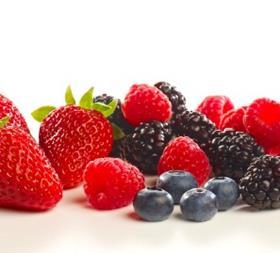
Men who eat flavonoid-rich foods such as berries, apples and aubergines significantly reduce their risk of developing Parkinson’s disease, according to new research by Harvard University in the US and the University of East Anglia in the UK.
Published in the US journal Neurology, the study is the first on humans to show that flavonoids can protect neurons against diseases of the brain such as Parkinson’s.
Around 130,000 men and women took part in the research. More than 800 had developed Parkinson’s disease within 20 years of follow-up. After a detailed analysis of their diets and adjusting for age and lifestyle, male participants who ate the most flavonoids were shown to be 40 per cent less likely to develop the disease than those who ate the least. No similar link was found for total flavonoid intake in women.
The research was led by Dr XiangGao of Harvard School of Public Health in collaboration with Prof AedinCassidy of the department of nutrition, Norwich Medical School at the University of East Anglia.
Gao said: “Participants who consumed one or more portions of berry fruits each week were around 25 per cent less likely to develop Parkinson’s disease, relative to those who did not eat berry fruits. Given the other potential health effects of berry fruits, such as lowering risk of hypertension as reported in our previous studies, it is good to regularly add these fruits to your diet.”
The findings must now be confirmed by other large epidemiological studies and clinical trials.
Parkinson’sdisease is a progressive neurological condition affecting one in 500 people, which equates to 127,000 people in the UK. There are few effective drug therapies available.



